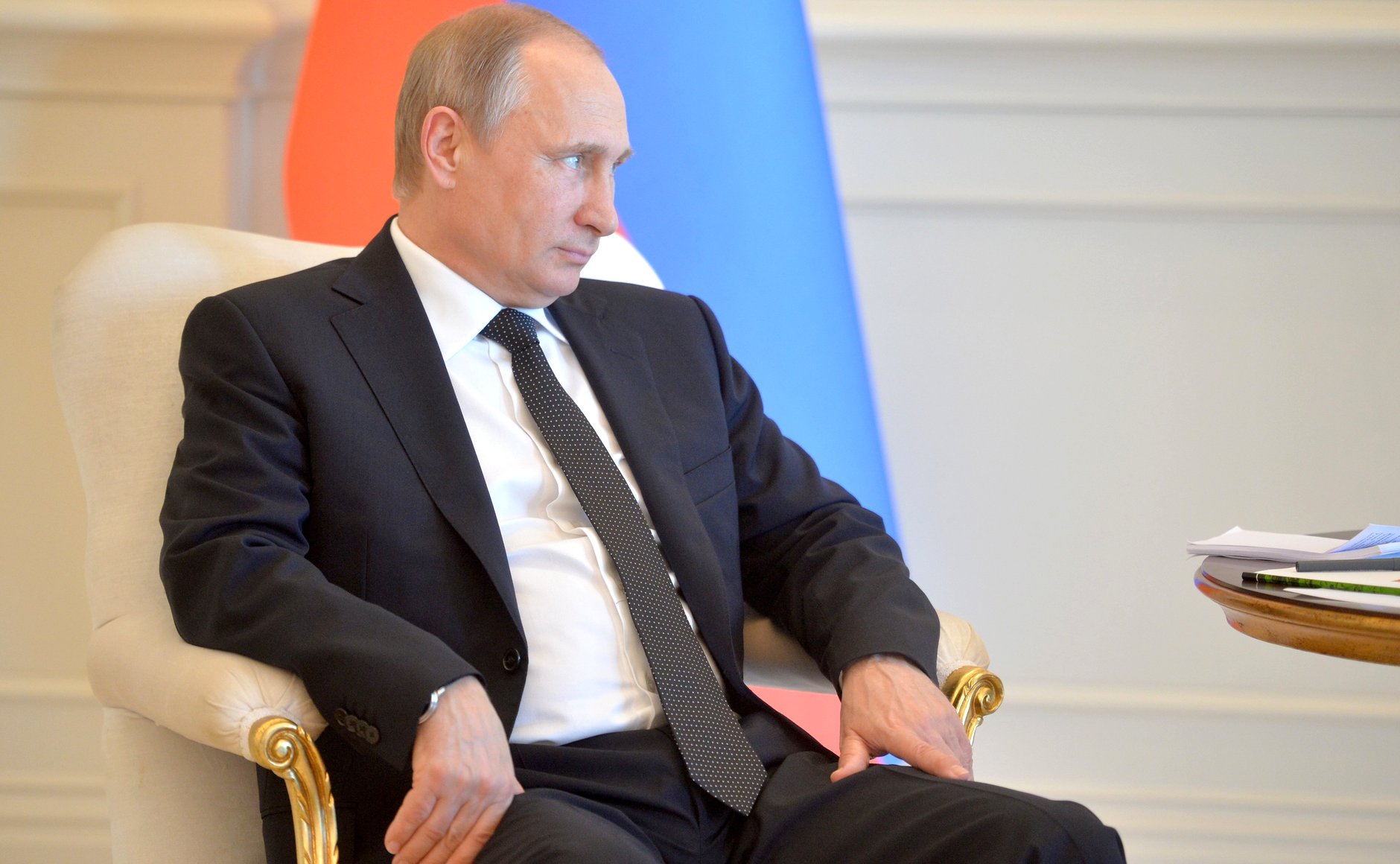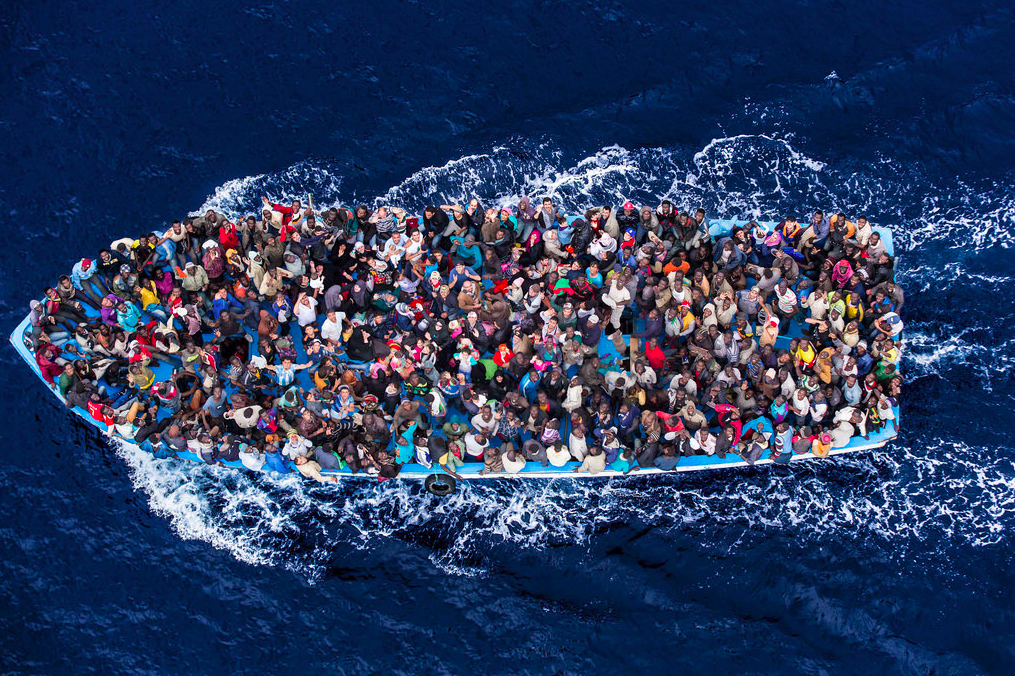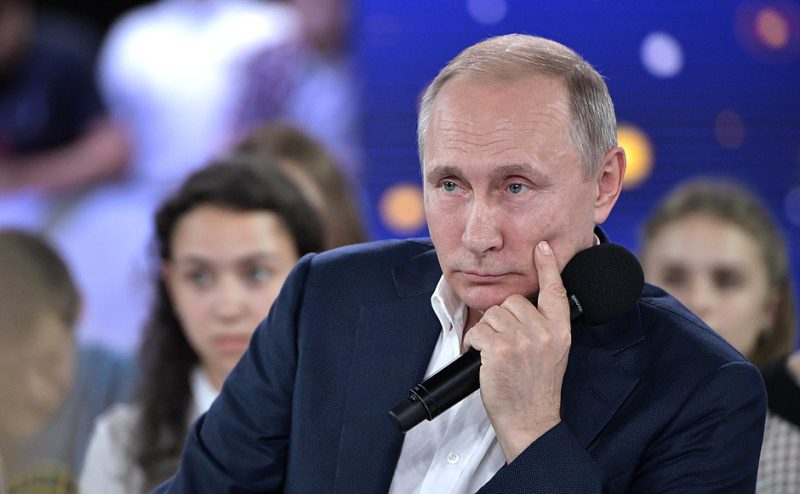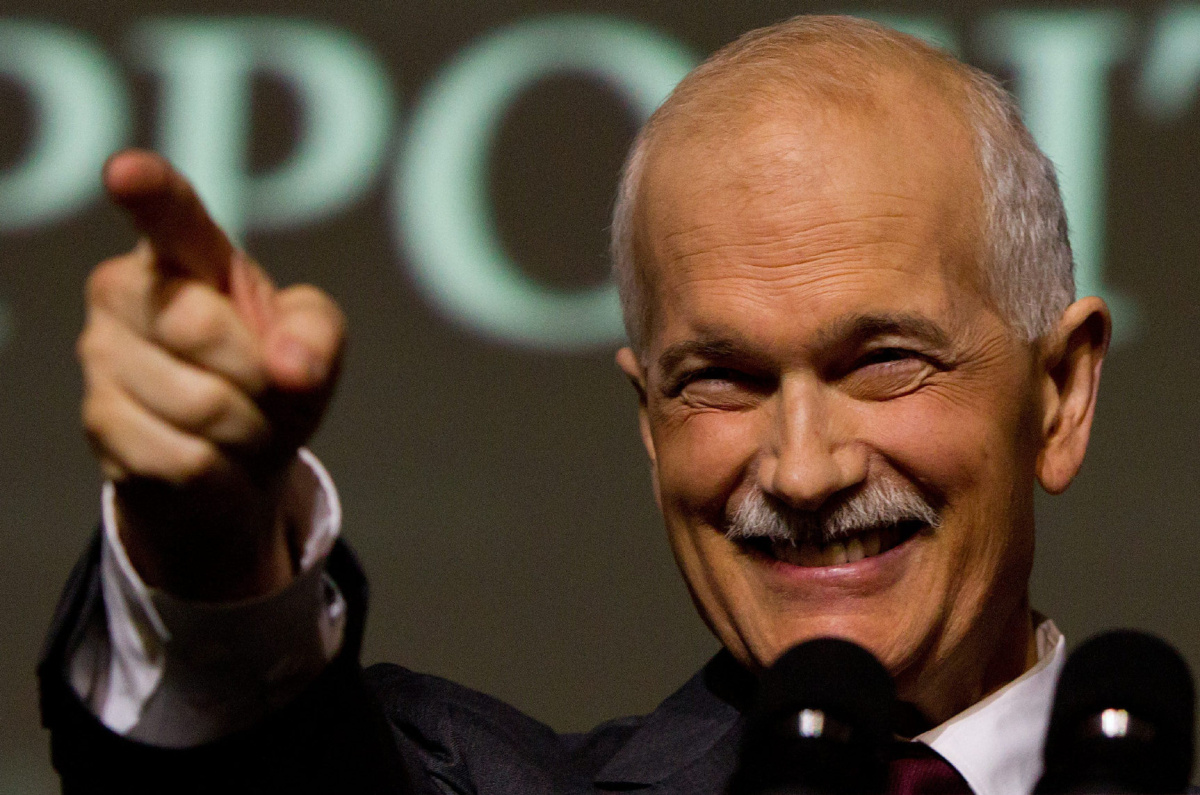Sometimes it is the most absurd images that reveal the most unnerving elements of truth.
By now, the photographs and videos showing the effects of Vladimir Putin’s newest presidential decree have gone viral: images of bulldozers crushing bricks of fancy French cheese; workers stomping on fresh peaches; customs officials tossing packaged meats into furnaces; police charging three frozen, packaged geese with sanction-breaking at a show trial (complete with witnesses), and subsequently carrying out the grisly sentence—crushing them at a garbage dump in Tatarstan.
Putin’s August 6 edict demands the destruction of all food products imported from countries that have participated in the collective sanctions campaign against Russia. The importation of such products has been prohibited since August 2014, and includes meats, seafood, dairy products, fruits, and vegetables from the United States, Canada, Australia, Norway, and European Union.
Russian Agriculture Minister Alexander Tkachyov expressed the official Kremlin stance in a public statement:
“We are following international practice. If you break the law with contraband then it should be destroyed. Let me emphasize, we cannot allow products of suspicious quality to get to stores to feed our people.”
Kremlin spokesman Dmitry Peskov admitted that the viral images “may not look very nice;” however, he was adamant in defending the President’s decision. “If you think about it, these are smuggled goods that lack any certificates […] and no one can take the responsibility and guarantee that these products, which may look appealing, are not dangerous for human health.”
These are fragile explanations for extreme actions.
In truth, the prohibition and destruction of foreign foodstuffs represents a dangerous branch of Putin’s nationalism: the pursuit of economic self-sufficiency.
Facing increasingly harsh sanctions over his illegal actions in Ukraine, Putin has decided to turn inwards, with the hope of building up Russian economic, agricultural, and industrial capacities in order to reduce dependency on the West.
This is not a fundamentally new concept. Throughout history, dictators across the political spectrum have aggressively and fruitlessly pursued autarky: the utopian concept of complete economic independence from the rest of the world.
In theory, autarky is a perfect system. A state that is able to internally produce all of its products requires neither foreign trade nor aid in order to thrive. However, while autarky might function successfully for short periods of time in small villages or communes, historical examples reveal that true autarky simply cannot be achieved when scaled to accommodate for an entire country. At the very least, not without immense loss of life.
The great famines of the 20th century such as the Soviet famine of 1932-1933, the Great Chinese Famine of 1959-1961, and the North Korean Arduous March of the 1990s, all occurred within closed economies which sought to complete doomed autarkic experiments.
While many factors contributed to each of these humanitarian crises, including agricultural mismanagement, natural disasters, and poor fiscal policies, the fact remains that an obsessive drive for economic self-sufficiency was integral to these three famines, which claimed an estimated combined 50 million deaths.
Influential Indian economist Amartya Sen points out that autarky-based famines are characteristic of specific types of governments. “No famine has ever taken place in the history of the world in a functioning democracy,” he explains. He asserts that this is because democracies “have to win elections and face public criticism, and have strong incentive to undertake measures to avert famines and other catastrophes.”
Indeed, autarky and authoritarianism go hand in hand. On a philosophical level, both are highly egotistical concepts, revolving around a culture of centralization and control. Just as the authoritarian leader hopes to survive without a citizen mandate, the autarkic economy hopes to survive without dependence on any other country. And with his decree to destroy all foreign foodstuffs, Vladimir Putin is beginning to walk down a very dangerous path indeed.
To be clear: as the economic situation presently stands, Russia is neither in, nor directly headed towards, a nationwide famine reminiscent of the 1930s. However, between early 2014 and 2015, the ever-increasing sanctions campaign, an economy in recession, the falling ruble, and the rising cost of living have plunged 3.1 million more Russians into poverty.
By the Kremlin’s own statistics, 22.9 million Russians currently live below the poverty line: 15.9% of the total population. And this number will only increase as the economy contracts an expected 3% this year. As the Kremlin’s prohibition on foreign imports continues, food prices continue to soar. Between 2014 and 2015, the price of grains and legumes rose by over 50%, fruits and vegetables by nearly 40%, and fish and seafood by over 30%.
Widespread starvation evokes powerful ancestral memories of the great Soviet famine of the 1930s, and in a country where over one-sixth of the population currently experiences great difficulty purchasing food necessities, Russian citizens are beginning to hit back at the Kremlin’s wastefulness.
“It is crazy, stupid, and mean,” expressed Aleksey Uminskiy, a Moscow priest. “This foodstuff could be distributed through charity groups who help people in need, the homeless, refugees, and the elderly.”
In retaliation to the presidential decree, activist Olga Savelyeva has begun a social media campaign with the intent of reversing the Kremlin’s decision, using the hashtag #недавиеду (“don’t smash food”), and an online petition with nearly 400,000 signatures as of September. Savelyeva condemns Putin’s decision as “the most stupid decree ever in Russian history,” adding: “This is the destruction of the population.”
Vladimir Putin’s decree, which journalist Thomas Grove describes as “culinary nationalism,” exemplifies the Kremlin’s complete lack of regard or respect for its starving citizens. Given the corrupt nature of the Kremlin’s bureaucracy, it is expected that many tonnes of seized food products will be clandestinely yielded to high-ranking and wealthy officials. “Will they destroy all that food?” wonders Savelyeva. “I doubt very much.”
In January, Deputy Prime Minister Igor Shuvalov publicly declared that Russians would “rather starve” than “give up their leader.” Sadly, this statement might prove to be more prophetic than originally intended.




